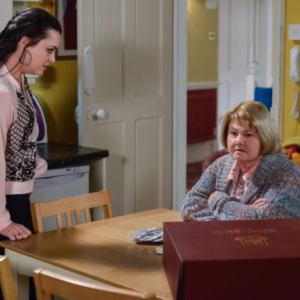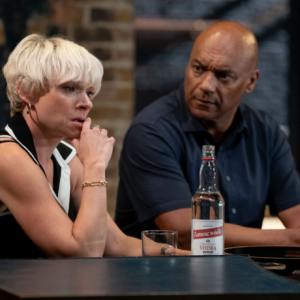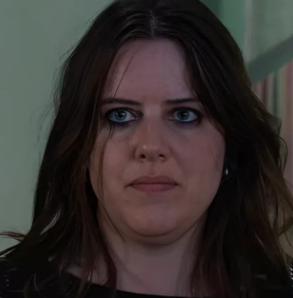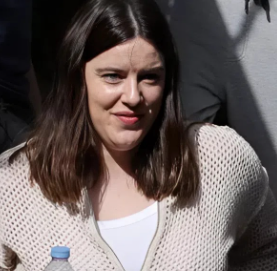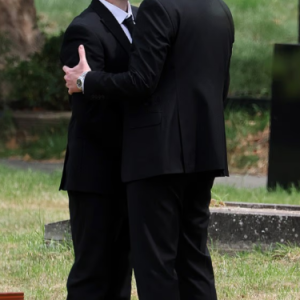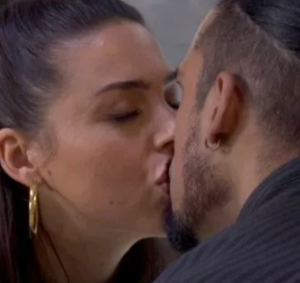In a surprising crossover that bridges the gritty streets of Walford with the glitz of Hollywood, acclaimed British actor Colin Salmon, known to millions as George Knight in the BBC One soap opera EastEnders, has unveiled a prominent American star as a devoted fan of the long-running series. The revelation came during a recent appearance on Good Morning Britain, where Salmon was promoting his latest film, Nobody 2. His co-star in the action sequel, none other than Better Call Saul’s leading man Bob Odenkirk, confessed his unexpected affection for the British institution.
Salmon recounted the moment on set when Odenkirk, renowned for his complex portrayal of Jimmy McGill/Saul Goodman, expressed his keen interest in EastEnders. “Once arriving on set Bob was there,” Salmon shared, “He asked about EastEnders because he watched it, he watches it and he says what he likes [about the soap].” This candid admission offers a fascinating glimpse into the viewing habits of A-list talent, suggesting that the intricate character dynamics and compelling narratives of a British soap opera can resonate globally, even with those accustomed to the high-stakes drama of prestige television.
Colin Salmon himself brings a rich and varied career to his role as the Queen Vic landlord, George Knight. Prior to joining EastEnders, Salmon was arguably best recognized internationally for his significant contributions to the James Bond franchise. He portrayed Charles Robinson, the astute Deputy Chief of Staff at MI6, appearing alongside Dame Judi Dench’s M in three films during Pierce Brosnan’s tenure as the iconic secret agent: Tomorrow Never Dies (1997), The World Is Not Enough, and Die Another Day. His presence as M’s trusted right-hand man solidified his reputation as a reliable and commanding screen presence. Beyond Bond, Salmon also ventured into the action-horror genre, taking on the role of James “One” Shade in the popular Resident Evil film series, further showcasing his versatility across different cinematic landscapes.
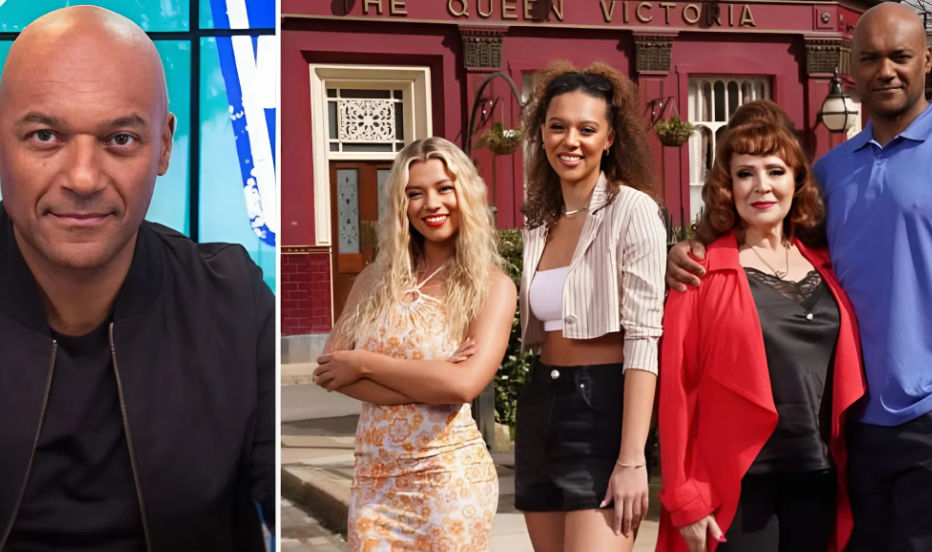
Salmon’s extensive small-screen credits are equally impressive. He notably appeared in the eighth and final series of the ITV prison drama Bad Girls in the mid-noughties, playing Senior Medical Officer Dr. Rowan Dunlop. Here, he shared the screen with legendary names such as Stephanie Beacham and Amanda Barrie, demonstrating his ability to hold his own within an ensemble of seasoned performers. Science fiction fans will also remember his recurring role as Dr. Moon in several episodes of Doctor Who in 2008, a testament to his wide-ranging appeal across different genres and fanbases.
His decision to join EastEnders in 2023 was driven by deeply personal reasons, a revelation that adds another layer of depth to the actor’s commitment to his craft and family. Salmon candidly shared that the role provided him with the flexibility to work while caring for his ill wife, a circumstance he described as a ‘gift from the universe.’ “My wife is not well so I can’t be far from home, so the universe has brought something quite extraordinary,” he explained at the time. The final push came from a compelling conversation with EastEnders boss Chris Clenshaw, whose passion, clear vision, and evident love for the show and its audience convinced Salmon to take on the challenge. As an East Ender himself, born in Clapton Pond, Salmon felt a profound connection to the show, which had been a significant part of his upbringing. This blend of personal necessity and professional alignment made the move a “no-brainer,” allowing him to pursue a different genre while embracing a role close to his roots.
Since his arrival in Walford, George Knight has been at the epicenter of some of EastEnders’ most gripping and emotionally charged storylines. He initially arrived as the new landlord of the Queen Victoria pub, bringing with him his two daughters, Anna and Gina, and his partner, Elaine Peacock. His character was immediately established as a protective patriarch and a man with a mysterious past, quickly integrating into the fabric of Albert Square.
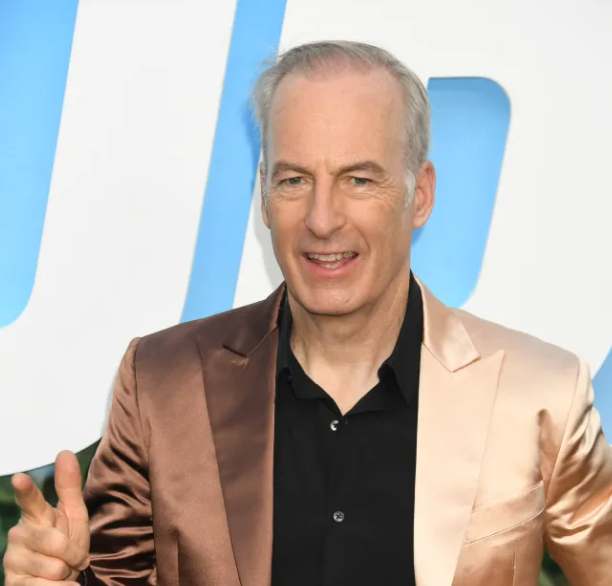
The most defining storyline for George has undoubtedly been the shocking revelation surrounding his ex-wife, the mother of Anna and Gina, whom he knew as “Rose Knight.” It was eventually uncovered that “Rose” was, in fact, the infamous Cindy Beale, a character presumed dead for decades. This dramatic twist plunged George and his daughters into a maelstrom of emotional turmoil. George’s unwavering love for “Rose,” despite her manipulative history and the profound deception, has been a central theme. Viewers have watched him grapple with reconciling the woman he adored with the notorious Cindy Beale, a figure whose past is steeped in tragedy and controversy. The fallout has been immense for his daughters, particularly Anna, who has grappled with her mother’s duplicity and made determined efforts to reconnect with her, and Gina, who has faced her own struggles with addiction, often exacerbating George’s parental anxieties.
Beyond the Cindy Beale saga, George’s character has been explored through his own deeply traumatic past as a champion boxer. A harrowing incident where he accidentally caused the death of his opponent, Eddie Monroe, in the ring has resurfaced to haunt him. This storyline recently intensified with the arrival of Eddie Monroe’s family, particularly his son Jordan and father Eddie Sr., who accused George of racially motivated murder. This led to a gripping legal battle that tested George’s resilience to its limits, delving into complex themes of racism, justice, the burden of past mistakes, and the lasting psychological impact of trauma. The immense pressure from both the Monroe trial and the ongoing Cindy Beale drama, coupled with his daughters’ personal crises, has pushed George to the brink, leading to compelling portrayals of his struggles with stress and mental health. His steady, though often tested, relationship with Elaine Peacock, a formidable and independent woman in her own right, has provided a crucial anchor amidst the chaos, showcasing Elaine’s loyalty and concern for George’s well-being.
The revelation that a star of Bob Odenkirk’s calibre is an EastEnders enthusiast speaks volumes about the soap opera’s enduring appeal and cultural significance. For over 35 years, EastEnders has consistently delivered character-driven narratives, tackling complex social issues with a gritty realism that resonates deeply with audiences. Much like the nuanced character studies found in acclaimed dramas such as Better Call Saul, EastEnders excels in crafting flawed, multi-dimensional characters whose motivations and pasts are meticulously unraveled over time. The long-form storytelling format allows for an unparalleled depth of exploration into human nature, moral ambiguities, and the intricate web of community life. The series’ commitment to high-quality performances from its ensemble cast, combined with its status as a quintessential British cultural institution, provides a unique window into society that clearly transcends geographical and professional boundaries.
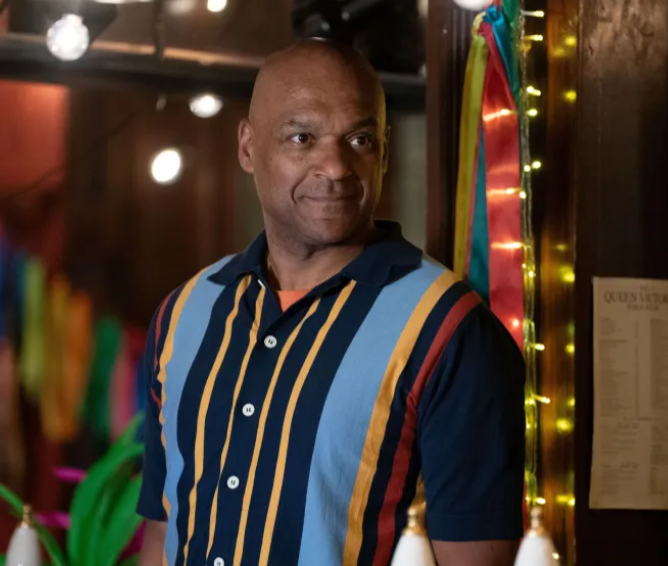
Colin Salmon’s journey from international film sets to the iconic Queen Vic, driven by a desire to be closer to his family, has not only enriched EastEnders with his considerable talent but has also brought an unexpected Hollywood connection to Albert Square. It’s a testament to the universal power of storytelling that a show deeply rooted in British working-class life can capture the imagination of a celebrated actor like Bob Odenkirk, proving that compelling drama, regardless of its origin, truly has no borders.
